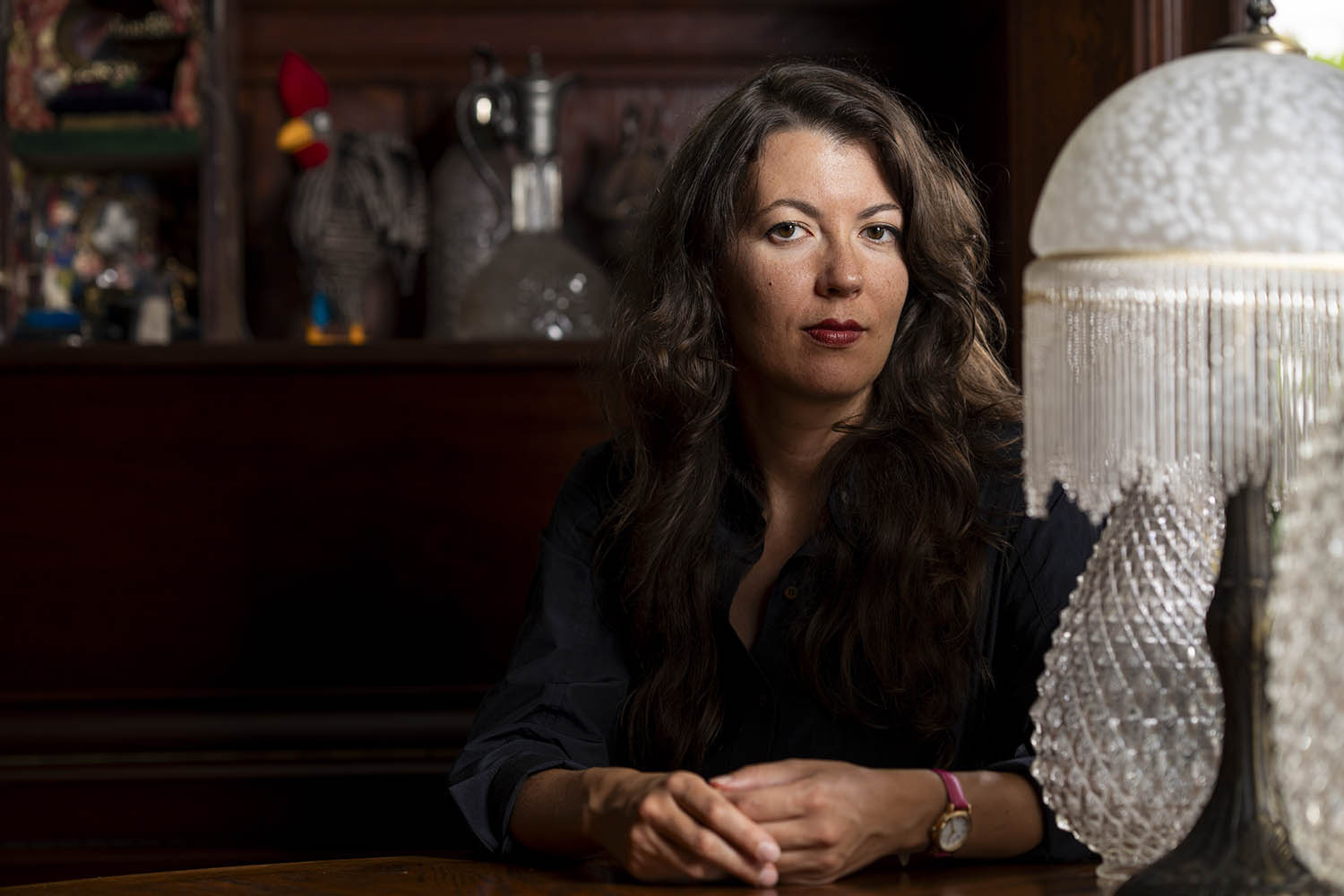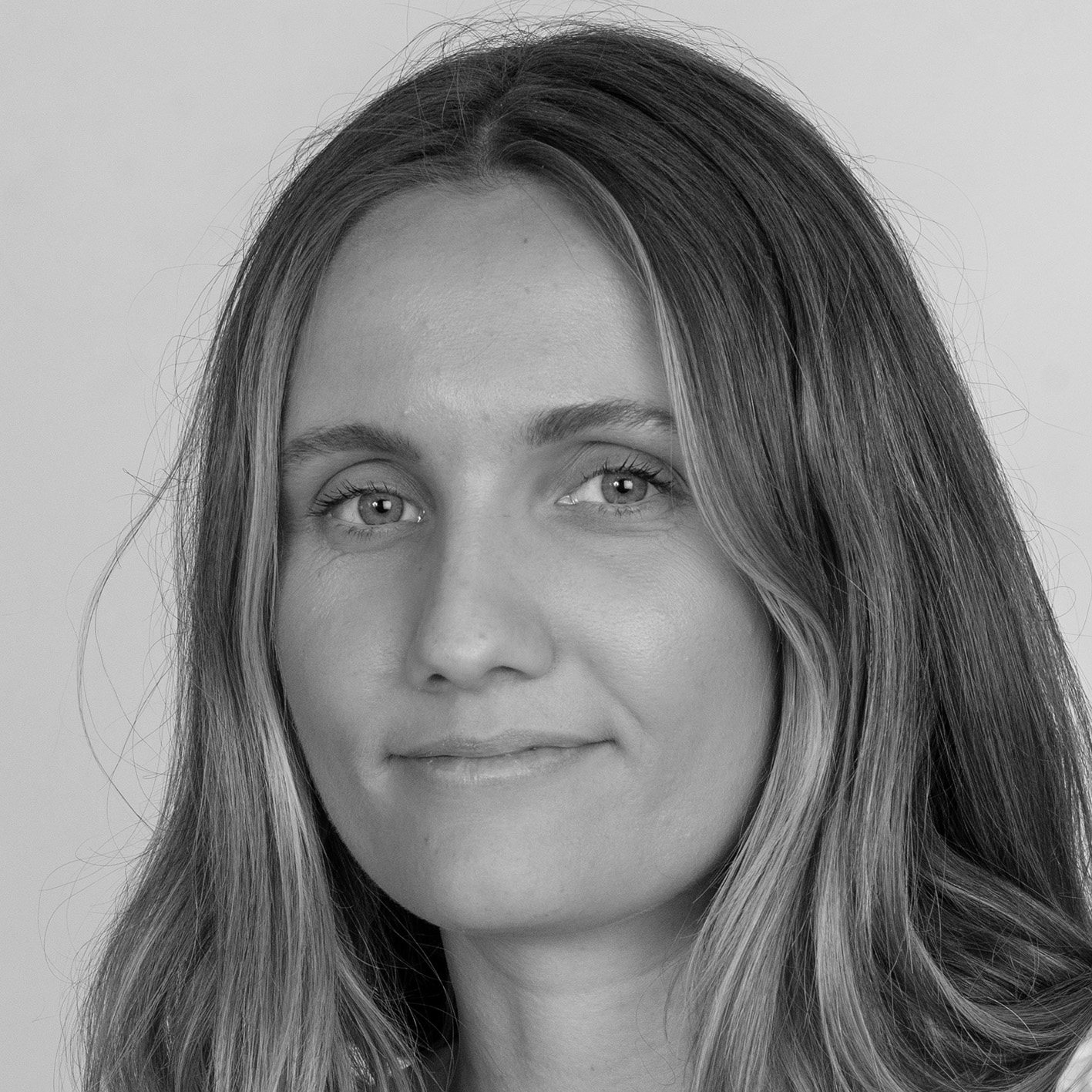Portrait by Jimmy Jeong
Maria Reva was born in Ukraine and grew up in Vancouver, Canada, where she currently lives. Her 2020 story collection, Good Citizens Need Not Fear, won the prestigious Kobzar book award and was a finalist for the Writers’ Trust of Canada’s fiction prize, prompting Margaret Atwood to describe her as a “new talent to watch”. Reva’s debut novel, Endling, is set in Ukraine in 2022 and features a scientist attempting to breed rare snails. It was longlisted for the Booker prize after its publication in July. Reva also works as an opera librettist.
At first, Endling is a story about a Ukrainian marriage agency combined with a kidnap plot. Where did that idea come from?
My sister was on a plane a few years ago, on her way to Princeton for her PhD. As soon as she mentioned that she was originally from Ukraine to the American man seated next to her, he said, “I would love to have a Ukrainian girl as a wife because American women are so ambitious and aggressive.” I started googling what people were saying about Ukrainian women, and unfortunately the top results were these romance tours that would cart in men from the west. They were promised that they would find everything in a woman there that they could not find on home turf.
How did snail conservationism come into the narrative?
I didn’t want to write a standard narrative of marriage. I had read an article by Ed Yong called The Last of Its Kind, about a biologist who takes care of snail endlings [the last surviving members of a species] and has the burden of extinction on his shoulders. So that became the motivation for one of the brides to take part in the tours: to fund her snail conservation.
Was that article a resource for the erotic snail sex in your book?
That article is all about how they were not having sex. There’s a really beautiful [nature documentary featuring] slugs mating. They sling themselves off a tree by their slime ropes and twirl around each other like ballerinas. There’s this beautiful music in the background that is so poignant I almost cried.
The process of writing the book was interrupted by the invasion of Ukraine. What made you decide to mirror that in the book’s structure?
When the full-scale Russian invasion happened, I thought there’s no way I can keep writing [the book] the way it is, because the war was all I could think about. I had all these questions swirling around in my head, of what is the role of literature in a time like this. The world is changing so quickly, but fiction is slow to form. Ultimately, I knew I could contribute by personifying the people in Ukraine behind the headlines and statistics.
How was the news of Endling’s Booker prize recognition received by your family in Ukraine?
The book has not been translated into Ukrainian, so my relatives there have not read it, but now it’s been longlisted for the Booker – for the first time in my career – Ukrainian news outlets are commenting on it. It’s a strange thing because it’s such a personal book and I didn’t expect it to gain this much attention. When I found out about the longlisting it really hit me on an emotional level.
The book has a sense of reality shifting underfoot. Were you inspired by any works of art that feature similar sorts of changes?
I had watched the movie Everything Everywhere All at Once, which ends halfway through. Nobody got up from their seats when the first, fake ending happened. There is this innate sense, I think, in viewers and readers, of when something is not truly ending. There was also The People of Paper, a novel by Salvador Plascencia, where the writer begins one kind of story which is completely derailed by a terrible heartbreak. Then there’s another novel, Barn 8 by Deb Olin Unferth, in which activists kidnap chickens from industrial farms as a way to protest the egg industry, [which inspired the novel’s themes of] social justice and kidnapping.
Do you think our relationship with reality is affected by seeing shocking events unfolding on the news?
For me, it was a sense of reality splitting in two: the reality that my relatives were living through, and the reality I was living through in Canada, where there’s a peaceful sky. It took a while for the invasion to seem real to me. I wanted to put that into the book as well as the sense that so many of us have of living in two places at once.
There’s a series of emails in the book that starts with a rejection letter. Was that based on a real exchange?
Yes, I think it was within the first three weeks of the invasion. An American media outlet had asked me as a Ukrainian to comment. I thought it was fitting, given the amount of dark humour coming out of Ukraine – where my family and friends were making jokes while sheltering in basements – to highlight that survival mechanism. It’s steeped in a very long tradition in eastern Europe: if you can make fun of something, you rise above it in a way. At the last minute they didn’t want to publish it because they thought it wouldn’t fit with the sensibilities of their readers.
Your book similarly employs humour amid darkness.
I think some folks are surprised that my novel could be funny because it’s about the war and my relatives, but it’s a lens through which one can process difficult events.
Does your work as an opera librettist help with writing novels?
Fiction writing is a very isolating thing, whereas opera is collaborative: you’re just one piece of the puzzle. My opera work has also made me cognisant of the limitations of certain containers for stories. In the chapter of this book where three women are having a meeting about where to flee after the invasion, it just wasn’t working as straight prose. I figured, let’s put this as a memo, like the minutes of a meeting, because these women are trying to make sense of a completely chaotic situation.
Endling is published by Virago (£20). Order a copy from The Observer Shop for £18. Delivery charges may apply
Editor’s note: our recommendations are chosen independently by our journalists. The Observer may earn a small commission if a reader clicks a link and purchases a recommended product. This revenue helps support Observer journalism
Newsletters
Choose the newsletters you want to receive
View more
For information about how The Observer protects your data, read our Privacy Policy

